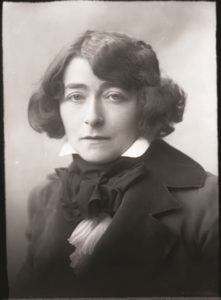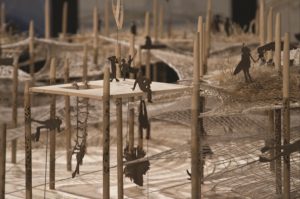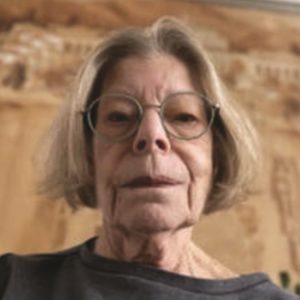Martha Rothman recalls the awe of first encountering E-1027, the sprawling modernist villa that Irish architect Eileen Gray designed for herself and her lover in the south of France. Built in the 1920s, the now-restored L-shaped house is enclosed by floor-to-ceiling windows that overlook the Mediterranean Sea.

“The house is like a jewel,” Rothman says. “Gray’s artistic training in lacquer really comes through. There are all these moving parts that are so artfully crafted.”
Gray is one of the subjects of a class that Rothman will be teaching at the Open University of Wellfleet beginning this month. The course, “Women in Architecture: Defining Viewpoints,” will be a survey of architectural evolution over the past two centuries with an eye towards recognizing female architects, many of whom have not received the same attention as their male counterparts.
“Nearly all the architects in the course are ones that I was never taught about during my own studies,” says Rothman. “They were just not recognized. But now I think there’s a mindset coming into architecture reflecting a new awareness of the world.”

A native of New Jersey, Rothman was one of two women to graduate from the Harvard Graduate School of Design in 1965. She then spent nearly 50 years of her working life in Boston, and along with her husband, architect Elliot Rothman, became a part-time Wellfleet resident in 1976.
“The architectural tradition of Wellfleet is certainly one of the things that drew us there,” Rothman says. She is also a painter, and she and her husband had a joint exhibition at Wellfleet Preservation Hall in 2021.
Last winter, Rothman taught an Open University class on Frank Lloyd Wright, who was based in the U.S., and Charles-Édouard Jeanneret, known as Le Corbusier, who mostly worked in Europe. It was Rothman’s first experience with teaching.
“I was kind of terrified,” she recalls, “mostly about whether I’d mess up screensharing.” She says the class ended up being a success thanks to the discussion it inspired among her students: “The Open University really attracts knowledgeable groups of people with diverse interests.”
Rothman says the theme of the first class in her new course will be “Groundbreakers and Innovators,” and as such will consist of a lot of “firsts.” Participants will learn about 20th-century residential architect Eleanor Raymond. “She had deep ties to Boston and was a forerunner of the Cape Cod modern house,” says Rothman. Raymond also co-designed the first solar-heated home, in the town of Dover, west of Boston, in 1948.
The second week will look at mid-20th-century women architects who designed with their architect spouses. Two of Rothman’s subjects, Sarah Pillsbury Harkness and Jean Bodman Fletcher, were founding members of the Architects Collaborative, a Cambridge-based firm with which Bauhaus founder and architect Walter Gropius was involved when he co-designed the Murchison House, a modernist landmark at 2 Commercial St. in Provincetown. (Another class session will look at contemporary architectural collaborations where women play a central role.)

Rothman will also discuss women in positions of academic leadership, with a particular focus on landscape architect and Columbia University Professor Kate Orff, whose work confronts the climate crisis through socially conscious architecture. One of Orff’s firm’s projects, called “Oyster-tecture,” was commissioned by the Museum of Modern Art in 2009 and “envisions an active oyster reef that diversifies aqueous marine life and recreational potential in the New York Harbor,” according to Orff’s SCAPE Studio website. Rothman says that environmentalism and community housing are key to Orff’s priorities and style and are also central to understanding contemporary trends in architecture. “These are issues that were not at the forefront 10 or 15 years ago,” she says.
The final class will focus on female architects who have been firm and design leaders including Zaha Hadid, the eminent British-Iraqi architect who died in 2016. “She did huge numbers of projects all over the world,” Rothman says, “and her firm has outlasted her.” The class will also include a discussion of work by Maya Lin, who is best known for her design of the Vietnam Veterans Memorial in Washington, D.C. and whose most recent project is a memorial that addresses extinctions precipitated by climate change.

“My premise is that individual viewpoints produced different types of work, with no common ground of a ‘feminine gene’ that links the work,” Rothman writes in the description of her class. “Rather, an underlying persistence and aptitude enabled these women to succeed in what was perceived as ‘a man’s profession.’ ”
Rothman says she is looking forward to the course even if she recognizes its immense scope. “The more I get into it the more I think: am I trying to do too much in five weeks?” she says. “But I’m really interested to see where the discussion takes us in each class.”
The five-session course will take place over Zoom on Tuesdays beginning Feb. 14 and costs $60. See openuniversityofwellfleet.org for information.



